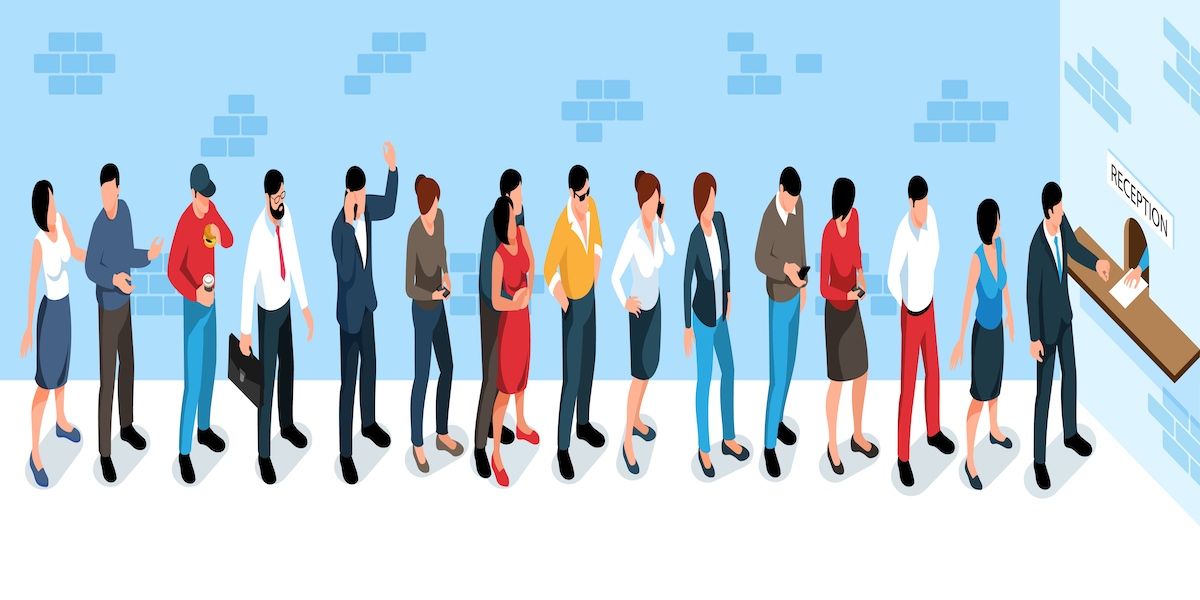
Your Clients Hate Waiting - This Is Why
Jun, 29 2021·4 min readThe saying goes, “Good things come to those who wait”, but we also know that time is money. Those who get to enjoy its wealth are the ones who know how to manage it properly.
Waiting in lines has become a part of our lives, however, no one likes waiting. The hatred for queues lies in human psychology and is also influenced by certain external factors, such as the advancement of technology
Businesses have the option to accept waiting as a norm and trust that their current and prospective customers will be loyal enough to wait it out. Or they can look into how the psychology of waiting affects their customers and their business. This should help them implement strategies and systems that will improve their customer experience.
The Factors that will determine how long customers will wait
Degree of Importance
The importance and urgency of the customer’s interaction with the business will be one of the first factors that a customer will consider before deciding to join a long queue or wait for a service to be rendered. Therefore, if you are offering products and services that are very critical, you stand a higher chance of having customers willing to wait a bit longer to be assisted.
Availability of Substitutes
After deciding the degree of importance, the customer’s loyalty gets tested as they start considering alternative substitutes to your business. New customers are more likely to jump onto the next available substitute than loyal customers. The overall value of your goods and services, the customer’s previous experiences, and their satisfaction will play a big role in deciding to look for substitutes, wait, or come back later.
Time Available
Nothing else will matter if time does not allow a customer to wait. Therefore, having taken everything else into consideration, a customer will only wait if there is some spare time in their schedule.
Who Is Paying?
We live in an era where most businesses have some sort of loyalty point programme or partnership with other organisations that afford customers discounts when interacting with the business. The fact that the customer could save on costs or get points that they can redeem at a future stage will most likely increase their willingness to wait. In this case, the customer is motivated to wait as they deem the discount or them not paying out of their pocket as a win.
Why Customers Don’t Want To Wait
Unoccupied Time Moves Slower Than Occupied Time
Time flies when you’re having fun, right? People tend to feel like time moves faster when they are busy. It only feels like this because when we are busy, we focus less on the passing of time. By the time we do get to look at the time, it would seem like time flew by in a flash. According to Dr Muireann Irish, a cognitive neuroscientist from the University of Sydney, “If we’re waiting for something to happen … time can dilate and actually feel it has been a lot longer in duration”.
A study was done by German psychologist Marc Wittmann where people were forced to sit in a room for seven-and-a-half minutes without doing anything. The participants had different answers to how long they think they have been in the room. This indicated that it is not just external factors that influence how one perceives time, but also who we are.
It is, therefore, important to know your customers give them the option of doing other thighs while waiting.
Fear Of An Uncertain Future
The psychology of waiting tells us that people are more at ease when the waiting period is made known to them. Bryon Robinson wrote in his article, The Psychology Of Uncertainty: How To Cope With COVID-19 Anxiety, that the brain is constantly trying to reach a point of certainty and will assume the worst or jump to conclusions in times of uncertainty. Furthermore, an uncertain brain increases stress levels, making the waiting period for certainty a very torturous period.
One overly stressed or anxious customer is like one rotten potato in a bag, chances are that they will engage in conversation with other customers or behave in such a way that will make them anxious.
Businesses that openly state their average waiting period or communicate how long a customer will have to wait for can make waiting a little less stressful for their clients.
Fear Of Missing Out
We are living in a time where everything is about the “Now”, and missing out is just not an option. The Fear Of Missing Out (FOMO) was coined in 1966 by Dr Dan Herman and refers to the perception that others are having more fun and experiences than you, which creates a sense of envy and affects your self-esteem. FOMO can cause significant stress as one feels like they are missing out on something fundamentally important that others are experiencing.
This phenomenon can affect just about anyone but is more common with digitally connected consumers and those who are on social media platforms. If you have to keep them at your premises, you should at least offer them free wifi or a virtual queueing app that will allow them to carry on with their fun activities while waiting.
Understanding the psychology of waiting and how it could affect your customers will help you make informed decisions in implementing the correct strategies and software to improve customer experience and gain a competitive advantage over your competitors.

Get latest updates and offers.
Information
hello@waitr.co.za
+27 71 554 4918
Suite U8, Enterprise Building
The Innovation Hub, Lynnwood
Pretoria, 0087